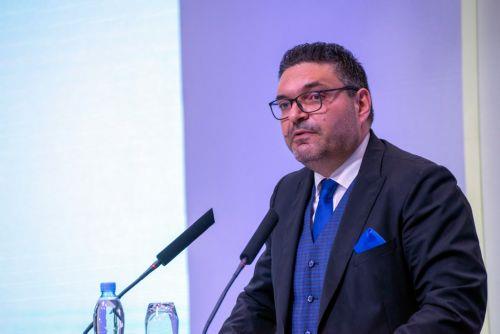Next year will be difficult for economy amidst inflation, high energy prices and deglobalisation, said Finance Minister Constantinos Petrides on Wednesday.
Speaking at a conference organised by Deloitte, the minister said we need to be “even more careful” with fiscal discipline in the face of new economic challenges.
He explained that we will need these ‘safety cushions’ that we have created, “so despite social pressure we should not waste them in the short term, as most political parties everywhere are calling for”.
The minister said he hoped that “we will stop playing with the economies”, not only in Cyprus but in all European countries.
Next year will be quite difficult for the economy, Petrides said, noting the challenge of inflation, caused by a number of factors and ‘mistakes’. These include the policies followed during the pandemic to support income, the expansionary monetary and fiscal policies of the EU with negative interest rates and the green transition, which, he said, the EU proved not to be ready for.
Petrides added that an interesting new era of challenges is coming, marked by deglobalisation, intense geopolitical tension, many changes required for the green transition and high energy prices.
Regarding the Cypriot economy, he highlighted the growth rate of six per cent in the first half of the year, which exceeded forecasts, as well as other indicators showing the potential and resilience of the economy.
However, he reiterated that the next year will be difficult.
For his part, Governor of the Central Bank of Cyprus Constantinos Herodotou also referred to the difficulties in the coming year.
“The main current challenge for the European Central Bank (ECB), as well as other major central banks, is to raise interest rates to deal with inflation, while the risk of recession is high,” he said. He added however, that the longer inflation remains high, the more damage it will cause to individuals and companies.
Herodotou said while monetary policy would act decisively to bring inflation back to official targets, fiscal policy should be targeted so as not to offset monetary policy but at the same time safeguard the income of the most vulnerable.
Referring to the impact of the war in Ukraine on Cyprus, he said he expected disruption in trade in services and a rise in commodity prices, as well as an indirect impact on business and consumer confidence.
He added that Cyprus’ most important exposure to Russia is services exports, related to financial and other business services and to a lesser extent tourism and transport.
On the banking sector, he said that the current situation is encouraging, but there should be no complacency. He said although the banking sector was showing a significant reduction in non-performing loans (NPLs), progress was not similar across the banking system, with smaller banks lagging behind. The risk of new defaults, he added, is elevated in the current economic outlook. Rising inflation levels combined with rising interest rates are expected to reduce household net income, which may hamper borrowers’ ability to repay, the governor said.
Speaking on behalf of Energy Minister Natasa Pilides, the Director of the Ministry’s Consumer Protection Service, Constantinos Karagiorgis, said that Cyprus is concerned about the impact of the energy crisis.
Although the island is not currently facing security of supply problems, it is aware of the impact of the energy market on many sectors of the economy, particularly in electricity, production, transport and heating, he said.
Another major concern, he said, is the impact of the war particularly on exports, services and the supply chain, coupled with higher than expected commodity prices affecting vital sectors of the economy such as construction and industry. He added that to support the energy upgrade of businesses, the ministry is implementing a series of projects with a budget of €350 million and ensuring that consumers and businesses remain at the heart of the reconstruction process for sustainable recovery.
As regards tourism, which accounts for a significant percentage of the country’s GDP, Deputy Minister of Tourism Savvas Perdios said that the goal remains to establish Cyprus as an annual, high quality, digitally smart and more inclusive destination where all its residents can benefit from tourism. “So everything we do is driven by this vision,” he said.







Click here to change your cookie preferences